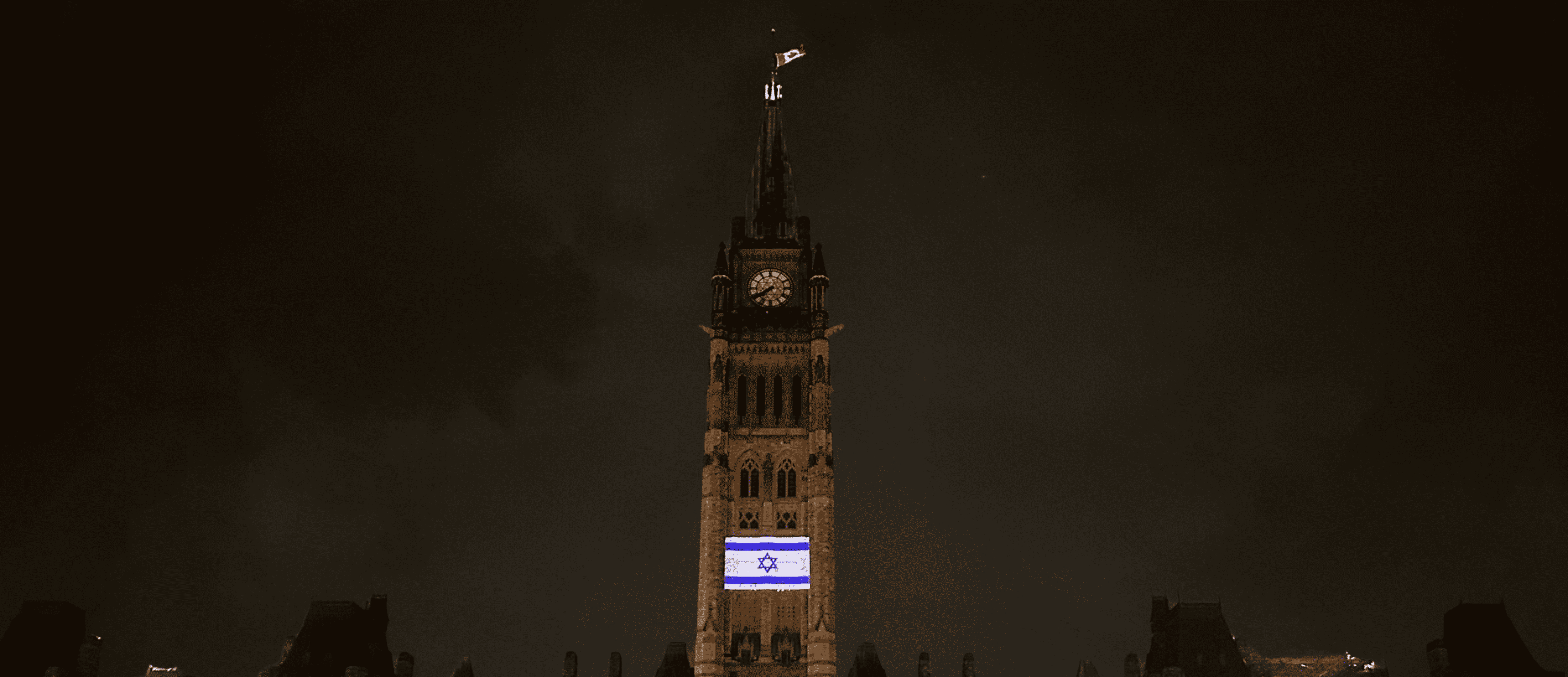- About
- Research
-
-
- Special Reports & Features
- Pretendians and Publications: The Problem and Solutions to Redface Research
- Pinasunniq: Reflections on a Northern Indigenous Economy
- From Risk to Resilience: Indigenous Alternatives to Climate Risk Assessment in Canada
- Twenty-Five Years of Gladue: Indigenous ‘Over-Incarceration’ & the Failure of the Criminal Justice System on the Grand River
- Calls to Action Accountability: A 2023 Status Update on Reconciliation
- Data Colonialism in Canada’s Chemical Valley
- Bad Forecast: The Illusion of Indigenous Inclusion and Representation in Climate Adaptation Plans in Canada
- Indigenous Food Sovereignty in Ontario: A Study of Exclusion at the Ministry of Agriculture, Food & Rural Affairs
- Indigenous Land-Based Education in Theory & Practice
- Between Membership & Belonging: Life Under Section 10 of the Indian Act
- Redwashing Extraction: Indigenous Relations at Canada’s Big Five Banks
- Treaty Interpretation in the Age of Restoule
- A Culture of Exploitation: “Reconciliation” and the Institutions of Canadian Art
- Bill C-92: An Act respecting First Nations, Inuit, and Métis Children, Youth and Families
- COVID-19, the Numbered Treaties & the Politics of Life
- The Rise of the First Nations Land Management Regime: A Critical Analysis
- The UN Declaration on the Rights of Indigenous Peoples in Canada: Lessons from B.C.
- View all reports.
- Special Reports & Features
-
-
- Yellowhead School
- The Treaty Map
- LIBRARY
- Submissions
- Donate
As the escalation of the genocide in Gaza unfolds, Canadians watch the violence via mainstream news and read statements from political officials. However, for a country with a long role in this conflict, there is near non-existent coverage of the context of Canada and Canadians participation in the history of the violence. Hoping to correct this absence, this Brief offers an overview of some of the key roles Canada has played in the colonization of Palestine. From the Partition and Nakba, to the emergence of Peacekeeping, and direct involvement in invasions, Canadians should confront the realities of their ongoing involvement.
Partition and “Peacekeeping” in Palestine
Canada makes much of its peacekeeping history, even asserting a founding role in the international community of post-war states. Indeed, in post-war international relations, Canada was a frequent intervenor. One of the lesser-known contributions was the partition of Palestine and the displacement of its inhabitants.
Leading up to the formation of the State of Israel came a series of United Nations-led committees, reports, and proposals in support of the partition of Palestine, with Canada active at nearly every stage. Supreme Court of Canada Justice Ivan C. Rand was key to the formulation of the 1947 United Nations Special Committee on Palestine Majority Report (UNSCOP) that led to the Ad Hoc Committee on the Palestinian Question. Justice Rand was not merely sympathetic to the Zionist movement — he saw the creation of an Israeli state as a much-needed Western outpost in what he saw as an “otherwise darkened section of humanity.” Israel would be the “beacon of light” and provide the region with the “civilizing influence of the West.”1
Senior Diplomat Lester Pearson dispelled any ambiguity when he argued that a settler state would be “an outpost, if you will, of the West in the Middle East.” Pearson lobbied heavily at the UN for the partition of Palestine against the backdrop of uncertain allies. Emerging disputes between the US, the UK, and the USSR threatened the success of the vote. Pearson, conscious of the British “mandate” to oversee Palestine set to expire, implored the disagreeing parties to set aside their differences.
Pearson’s objective was to splinter alliances between the Arabs and the Soviets in the region. In his memoirs, he remarked that his involvement in the partition plan of the Holy Land, the land of his Sunday school lessons, was emotionally charged from the get-go.2 Pearson, like Rand before, drew on a deep-seated racism of Palestinian Arabs in line with Judeo-Christian attitudes towards the holy land, as well as colonial, “Orientalist” prejudices. For Pearson’s efforts, Zionists dubbed him the ‘Balfour of Canada.’3
The partition of Palestine also provided a convenient outlet and atonement for Western guilt at the Holocaust—a genocide perpetrated by Europeans against Europeans on European soil—and centuries of anti-Semitism in Europe. In other words, they were giving Palestinian land away to atone for their own guilt while ignoring Palestinian voices, their right to self-determination, and their long fight for independence throughout the British Mandate.
And so, Canada’s betrayal of Palestine predates the declaration of the State of Israel and the Nakba and Israel’s violent eviction of 700,000 Palestinians from their homelands in 1948.
Indeed, the actions of these two Canadian diplomats helped clear the path to make it happen. The Nakba — meaning “catastrophe” in Arabic — included the massacres of village populations such as Deir Yassin, news of which terrorized other villages and prompted people to flee.
The settler guerilla forces also assassinated key UN members on the other side of the issue from Rand and Pearson, people such as Count Folke Bernadotte, who advocated for Palestinian refugees’ right of return and earlier warned that partition would have a devastating impact on the Arab population of Palestine (Bernadotte had some experience, having rescued thousands of concentration camp during the war).
Canadian-Endorsed Catastrophe
Canada’s role in the Nakba and the ongoing occupation of Palestine by the State of Israel has been erased from Canadian consciousness. National Defence Canada describes the catastrophe as one of Palestine’s own making: “The UN General Assembly endorsed a plan for the partition of Palestine in November 1947. The plan called for creating separate Arab and Jewish states. This led to the proclamation of the State of Israel on May 14, 1948. Hostilities then immediately began against Israel by Palestinian Arabs and the neighbouring states of Egypt, Iraq, Lebanon, Saudi Arabia, Syria, Trans-Jordan, Yemen.” As is the case with all colonial narratives, the context is evacuated.
Hostilities did not “begin” with the Arabs attacking the new state; they had begun in the late 19th century with waves of emigration from Europe to Palestine, the Balfour Declaration of 1917 supporting the creation of a Jewish homeland, and British sanctions on Palestinians in the form of an arms embargo. In other words, in 1948, Palestinian Arabs and the surrounding Arab states were, in fact, defending against the partition and occupation — unsuccessfully so, in no small part due to supporters like Great Britain and Canada.
With a colonial foothold in Palestine, attention turned to managing hostilities. It may surprise Canadians that the origins of Canada’s extensive involvement in international peacekeeping evolved from Canada’s role in the Palestinian partition. The United Nations Truce Supervision Organization (UNTSO) was founded in part to enforce a ceasefire but effectively curtailed any potential Arab defence of Palestine.
During the Suez Crisis, Lester Pearson — then Canada’s “External Affairs” Minister — pledged Canadian forces, but the “Egyptians objected to the presence of Canadian troops. The uniforms, the regimental names and Canadian flags… seemed very similar to those of the British invaders. The Egyptians argued that their people would not understand any distinction between the two.” As the Peacekeepers were eventually deployed following Egypt’s successful reclamation of the Suez Canal, it would be Israel that asked them to leave.
Still, UN involvement in Palestine was the persistence of colonial and imperial power under a new name. Canada would play a central role in this innovation, an Orwellian take on war called “peacekeeping.”
Looking back on this history, we can see that Pearson’s efforts were ultimately in the service of neutralizing Palestinian resistance (and resistance of their allies). Canada, after all, is a manifestation of settler colonialism, too, and understands well the importance of racial hierarchies and containment along those lines. The fabrication of the terrifying “Other” justifies all manner of horrors. It was an attitude prevalent in 1947, 1956, and into the present.
“A Close Relationship”
In 2003, Canadian immigration officials were deporting Palestinian refugees in Canada on the grounds that the violence that they claimed to be fleeing was simply a part of Israel’s “attempts at establishing secure political frontiers and preventing terrorist attacks on its territory.” In other words, the refugee board believed that there was no evidence that the refugees were in danger since the violence towards them was not in any way racial or systematic. Refugee status was not a category that Palestinians could claim asylum under4; this reasoning requires the erasure of the occupation of Palestine. Palestinians appealing for refugee status from this racist colonial violence must be either terrorists or lying.
In Palestine, the colonizer has monopolies on the land, the resources, and the narrative. Indeed, it has a monopoly on victimhood as well.5 Canada knows this dynamic well with monopolies of its own.
Since 2003, and well before then, Canada has been one of Israel’s loudest cheerleaders on the international stage, even as Canadians disagree; it supplies tens of millions in arms to Israel that it knows full well will be used to displace and kill Palestinians; and even commits personnel to assist Israel. In 2014, the last time Israel invaded Gaza, Canadian officials were on the ground. After the October 7th attack, Canada sent in Joint Task Force 2 (JTF2). Major-General Denis Thompson remarked after deployment that “there’s certainly a close relationship between Canada Special Operations Forces and the Israeli Defense Forces.”
Canada supports, funds, and actively participates in the oppression of Palestinians; vilifies campaigns like Boycott, Divestment and Sanctions (BDS) that aim to put peaceful pressure on the state of Israel; and treats the incarceration and bombing of over two million Palestinians in Gaza with little concern, condemnation, or humanitarianism. Since this latest violence, this unfolding genocide, virtually all political officials and media outlets in Canada have parroted the trend. The normalization of the deaths of Palestinians over the years — because they are Arabs, because they are Muslims, because they stand in the way of colonization — is a dehumanization that fuels this oppression.
Then, as today, Canada is complicit.
Kulthum, Umm. A Brief History of Canada’s Role in the Colonization of Palestine, Yellowhead Institute. 2 November 2023. https://yellowheadinstitute.org/2023/11/02/candas-role-in-colonization-palestine/
Endnotes
1 Hassan Husseini, “A ‘middle power’ in action: Canada and the partition of Palestine,” Arab Studies Quarterly (2008): 51.
2 John A. Munro and Alex Inglis (eds.) Mike: The Memoirs of The Right Honorable Lester B. Pearson, Volume 2, 1948-1957. (Toronto: University of Toronto Press, 1973), qtd. in Hassan Husseini, “A ‘middle power’ in action: Canada and the partition of Palestine,” Arab Studies Quarterly (2008): 52.
3 Quoted in Husseini, p.51.
4 Zeinab Amery, “‘The Securitization and Racialization of Arabs in Canada’s Immigration and Citizenship Policies,” In Targeted transnationals: the state, the media, and Arab Canadians, edited by Jenna Hennebry and Bessma Momani (UBC Press, 2013): 37. See also: Le Journal des Alternatives, “Stop the deportation of Palestinian refugees,” Les Journal des Alternatives, June 11, 2003, https://vibdoc.com/stop-the-deportation-of-palestinian-refugees-a3239.html
5 Ghassan Hage, “On narcissistic victimhood,” Gaza: Law, morality and politics (2010): 101-126.



